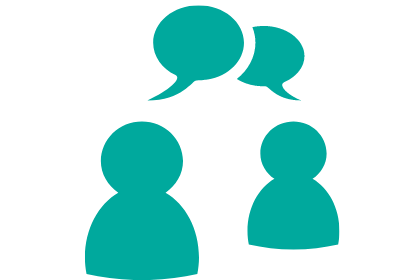Aphasia is an acquired language difficulty that affects a person's ability to understand and/or use words, sentences and conversation. Aphasia is a complex condition and it affects people in very different ways. Aphasia can be different for everyone.
Aphasia can result in very mild to very severe communication difficulties, and it does not affect a person’s intelligence.
Learn more about aphasia below:
Aphasia can lead to a number of different communication problems. For example, a person with Aphasia (PWA) may have difficulty;
Talking/Speaking (Expressive Language)
Understanding/ Comprehending (Receptive Language)
Reading/ Writing/ Numbers
Watch the video below about the aphasia café

Aphasia is caused by damage to the language centres of the brain, usually on the left side. This damage is most often caused by;
Aphasia is diagnosed by a team of medical professionals, including a speech and language therapist (SLT), who plays an important role in assessing and treating the disorder. Ideally, SLT assessment and treatment would begin as early as possible, and would involve collaboration with family members and carers.